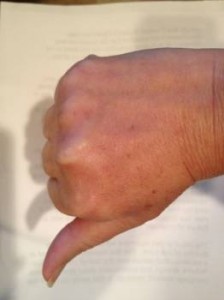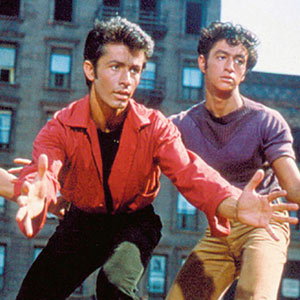Critic or Snarker? What Hurts and What Helps
Posted on August 22, 2012 at 3:59 pm
 It seems there’s a lot of criticism of critics lately. Some think they’re too soft. In Slate, Jacob Silverman bemoans the Twitter-fied outbreak of niceness in literary culture.
It seems there’s a lot of criticism of critics lately. Some think they’re too soft. In Slate, Jacob Silverman bemoans the Twitter-fied outbreak of niceness in literary culture.
Whereas critics once performed one role in print and another in life—Rebecca West could savage someone’s book in the morning and dine with him in the evening—social media has collapsed these barriers. Moreover, social media’s centrifugal forces of approbation—retweets, likes, favorites, and the self-consciousness that accompanies each public utterance—make any critique stick out sorely.
Not to share in the lit world’s online slumber party can seem strange and mark a person as unlikable or (a worse offense in this age) unfollowable. This kind of rationalization might mostly take place in our lizard brains, but I’d argue that it’s the reason why the literary world—a famously insular community to begin with—has become mired in clubbiness and glad-handing.
We all enjoy a witty smack-down. We all wish we could come up with le mot juste on the spot like Oscar Wilde, Jessica Mitford, or Dorothy Parker and not, in the French phrase, only too late, on the staircase on the way home (“l’esprit d’escalier”). Slate itself has just put up a selection of its favorite feature-length take-downs.
In Salon, J. Robert Lennon helpfully points out the difference between a good bad review — like his own critique of Paul Auster’s Winter Journal — and a bad bad review, like William Giraldi’s review of two new books by Alix Ohlin in this week’s New York Times Book Review. Yes, this is a critic criticizing a critic criticizing a book, and that’s worth reading. Lennon says:
The Giraldi piece has a lot in common with my own review of Auster’s book — artfully composed snark, copious quoting of badly written passages, and an air of malignant delight at exposing what the author considers offensively bad work. So: Am I mean? Is Giraldi mean? Is that a bad thing? Do I make other writers feel the way Ohlin is probably feeling right now? Should I worry about that?
I’d like to argue that Giraldi’s review is, in fact, quite nasty, and that mine is less so. And that my other negative reviews over the past few years aren’t nasty at all, even when they’re highly critical of their subjects. There is a good way to write a bad review of another writer, and I don’t think Giraldi is doing it. Whatever the shortcomings of Ohlin’s work might be, his review does its reader a disservice — his glee at eviscerating Ohlin overshadows his analysis, and casts doubt on its veracity. It isn’t trustworthy, which makes it no more valuable than the kind of swooning puff pieces most critics write.
Lennon says a critic should alway strive for context, balance, and humility. Perhaps most important, he echoes the wise words of Matt Atchity, who presides over the meta-critic site Rotten Tomatoes and says, “Don’t be a dick.” Atchity’s commentary was prompted by the incendiary fury of “Dark Knight Rises” fans (most of whom had not seen the movie yet) over some reviews criticizing the film.
Giraldi, in his review of Ohlin’s books, doesn’t merely hate the work, he hates the very idea of Ohlin — her aesthetic, her taste, her existence. Okay, fine — if everything about the book you’re writing offends you, if there’s nothing good you can say, then don’t say anything good. But don’t crow about it. You’re not impaling Hitler or protecting the Shire from Saruman. You’re reviewing a book. You want to put on a show? Nothing wrong with that — everybody loves a review with personality. Everybody enjoys a clever turn of phrase or an apt put-down. But have some perspective. Again, it’s not about you, for crap’s sake. The writer worked harder on her book than you will on your review, even if the former sucks.
(By the way, The Washington Post likes Auster’s book.)
My husband pointed me to a wonderful essay by the author, journalist, and critic Rebecca West, who says:
But there is a more serious duty than these before us, the duty of listening to our geniuses in a disrespectful manner. Criticism matters as it never did in the past, because of the present pride of great writers. They take all life as their province to-day. Formerly they sat in their studies, and thinking only of the emotional life of mankind—thinking therefore with comparative ease, of the color of life and not of its form—devised a score or so of stories before death came. Now, their pride telling them that if time would but stand still they could explain all life, they start on a breakneck journey across the world. They are tormented by the thought of time; they halt by no event, but look down upon it as they pass, cry out their impressions, and gallop on. Often it happens that because of their hastethey receive a blurred impression or transmit it to their readers roughly and without precision. And just as it was the duty of the students of Kelvin the mathematician to correct his errors in arithmetic, so it is the duty of critics to rebuke these hastinesses of great writers, lest the blurred impressions weaken the surrounding mental fabric and their rough transmissions frustrate the mission of genius on earth.
Of course, thoughtful, nuanced critiques are harder to sustain in the era of Rotten Tomatoes and Twitter. Instead of just one critic in one newspaper, consumers of media now have access to — and are bombarded by — floods of critiques, and it is tempting to out-do the competition. Readers can sort Rotten Tomatoes to read only the bad reviews. And click-machine Huffington Post helpfully gleans the internet for the most hostile bad reviews and headlines it “Did These Critics Go Too Far?” And, as a critic, it is hard to read those eviscerating quips without feeling competitive and jealous: “I can be much meaner than that!”
In the New York Times, Dwight Garner makes “A Critic’s Case for Critics,” with some hilarious stories about the revenge exacted on critics by the unhappy subjects of their reviews. I like this one, about two writers whose books I have read and enjoyed.
here is exhilaration in firing back, sometimes literally. The novelist Richard Ford, after a dismissive review from Alice Hoffman in The New York Times Book Review in 1986, shot bullets through one of her novels and mailed the mutilated thing to her. “My wife shot it first,” he reportedly said.
He understands that getting a bad review is terribly painful and quotes Dave Eggers’ apology for having written critical reviews and call for others to stop. But he says that we need critics, and that criticism itself can be an art form.
The sad truth about the book world is that it doesn’t need more yes-saying novelists and certainly no more yes-saying critics. We are drowning in them. What we need more of, now that newspaper book sections are shrinking and vanishing like glaciers, are excellent and authoritative and punishing critics — perceptive enough to single out the voices that matter for legitimate praise, abusive enough to remind us that not everyone gets, or deserves, a gold star.
The novelist Reynolds Price, who died last year, paused to note the sorry status of book sections in his 2009 memoir, “Ardent Spirits.” When he was starting out in the 1950s, he wrote, a first novel in America received about 90 individual reviews; now a decent first novel is lucky to get 20. Most of those will be amiable squirts of plot description topped, like a lemon slice on a Diet Coke, with the dread weasel-word “compelling.”
…criticism doesn’t mean delivering petty, ill-tempered Simon Cowell-like put-downs. It doesn’t necessarily mean heaping scorn. It means making fine distinctions. It means talking about ideas, aesthetics and morality as if these things matter (and they do). It’s at base an act of love. Our critical faculties are what make us human.
I once met a distinguished British actress who told me in her plummiest accent that an actor thinks of a critic the way a fire hydrant thinks of a dog. It happened that Mariah Carey’s movie “Glitter” had just opened, so I told her that if I could prevent one poor soul from spending time and money on that disaster, I felt I had made a worthwhile contribution. She laughed and said, “Oh, well if you are going to appeal to my sense of humanity, I can’t argue with you.” I’ve written bad reviews. I’ve been on the receiving end of a few as well. I think Garner is right that critics can and should work to illuminate ideas and provide context for books, movies, music, and other art forms. And I think Lennon is right that art and artists deserve our respect. The movies I am most critical of are the ones that do not respect the audience. The critics I am most critical of are the ones who don’t respect the artists. Artists and critics should both understand that the highest form of respect is to take the work seriously enough to engage with it and challenge it.

